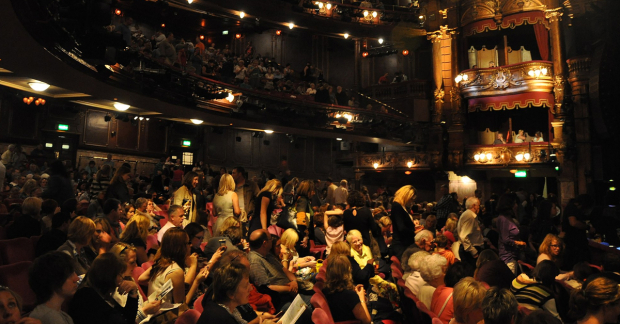LW Theatres: 'New, original and innovative projects are likely to be overlooked' when theatres reopen
A number of venues and companies have warned of the future of the industry without adequate support

© User:FA2010 / Public domain
More venues and performing arts companies have spoken out about their current circumstances during the ongoing pandemic.
Writing to the Digital, Culture, Media and Sport (DCMS) committee, a range of institutions warned of the long-term impacts of coronavirus and how the current Government policies do not adequately safeguard the arts while the lockdown continues and social distancing measures are in place.
Selladoor Worldwide, who oversee a number of touring productions including 9 to 5 and Bring It On, has said that the government has provided, thusfar, "a welcome support mechanism" through the various schemes available. However, it goes on to stress that, with time running out, "the sector is disadvantaged as a result of a one size fits all approach as currently the support available does not meet the needs of the sector as a whole".
More alarmingly, Selladoor stresses that "the funding and support does not go far enough to avoid a sector collapse of many companies".
October is an issue for Selladoor, who state that the proposed end date of the Coronavirus Job Retention Scheme (CJRS) is "long before it is believed that large public gatherings can occur and will present a cliff edge where the company's reserves have been decimated yet income not expected to resume until 2021." According to Selladoor, the Self Employed Income Support Scheme (SEISS) "significantly fails a vast majority of the sector".
LW Theatres, who own a number of West End venues, has said that social distancing measures will not allow performances to begin again, mentioning how "a production needs to have sold at least 65% of tickets simply to cover production costs."
Time is of the essence, according to the company. "In order to reopen shows at the end of 2020/start of 2021, we need to start securing investment and building productions now. As long as uncertainty remains and no roadmap towards reopening exists, producers and investors will not be willing to take on risk for future shows." It added, in bold, that "not less than 3 months' notice will be required in order to reopen West End theatres."
This, according to LWT, will impact the kind of work being performed: "The general reduction in theatrical investment is likely to be disproportionately damaging to new, original and innovative projects which are likely to be overlooked in favour of more established and commercially proven (and therefore intrinsically less risky) titles and projects." It has advised for the CJRS to remain in place past October for industries that cannot reopen.
London's Young Vic highlighted, among other vital messages, another important point: "The same-time return of multiple parts
of the creative industries will cause a collision of scheduling and artist and other worker availability – this could leave theatre at the back of the queue behind TV and Film which are typically better paid employments for our freelance workforce who move between."
It too called for significantly greater measures to be put in place to help the sector.












